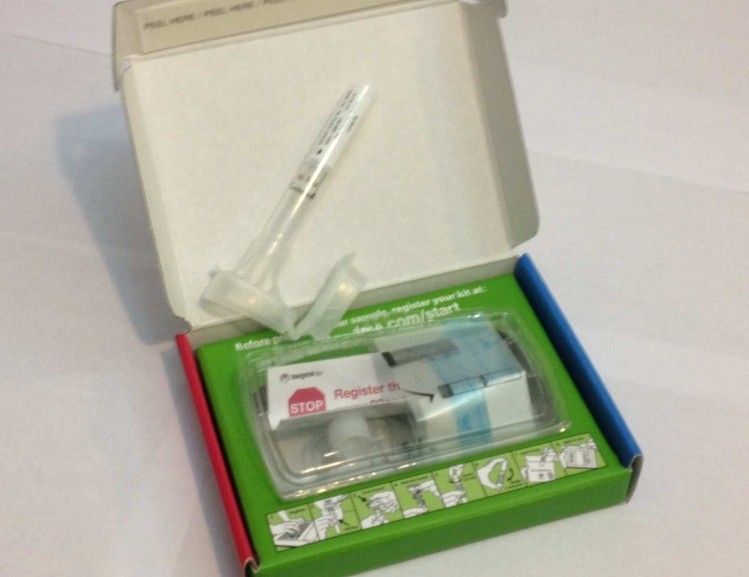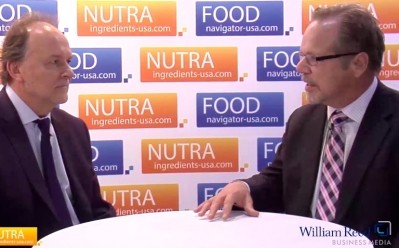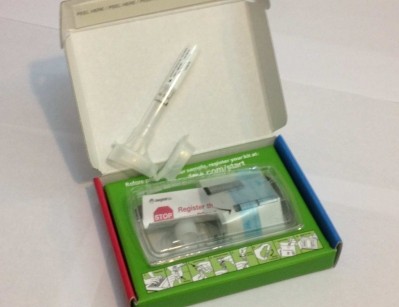Personalized medicine will transform how consumers choose, UNPA event attendees told

A meeting on Oct. 25 in Salt Lake City hosted by the United Natural Products Alliance brought together some of the players who have been laying the groundwork for this industry transformation. Executives from testing companies, research institutes and finished goods manufacturers who are active in the movement laid out how this market is developing, and where it might go from here.
A confluence of factors, including the availability of inexpensive genetic tests and multiple new apps for smart phones are starting to transform how consumers choose, said Loren Isrealsen, executive director of UNPA.
“Old genetic tests were far too cumbersome,” Israelsen said. He held up an outdated test that included a number of steps of samples gathering, culminated by packing the final result in a biohazard bag for shipment to the lab. “Ease and utility is what consumers want.”
And that utility will be provided by the rapid development of apps for the iPhone and other smart phones, Israelsen said. Apps exist for monitoring sleep patterns and a host of other personalized medical measures and more show up each day. In some European counties, simple pocket sized blood alcohol indicators are mandatory for drivers, he said. It’s all part of a tide that will see personalized measures permeate consumers’ thinking about how they interact with the marketplace, whether it’s deciding what kind of food to buy or which supplements to use, he said.
Tidal wave of chronic conditions
Dr. Jeffrey Bland, PhD, president of the Personalized Lifestyle Medicine Institute, laid out for the audience the scope of the problems facing that a personalized approach might seek to address. Rising tides of chronic disease threaten to swamp the healthcare system. Already the overwhelming majority of healthcare dollars are spent on managing chronic conditions, most of which arise out of preventable lifestyle factors, Bland said.
“If you look at total health care expenditures and ask how much is devoted to the management of chronic conditions, the answer is 72%,” Bland said.
Complex interplay of factors
Taking obesity and diabetes as an example, Bland said the factors that determine the interplay of these conditions are not very well understood. Metabolic disturbances are increasing at a rate that is difficult to explain with traditional genetic modeling tools, he said.
“You can’t understand these frequency changes based on a Mendelian genetic model,” he said. “The alarming thing if you take a look at metabolic diseases, they are increasing in younger age individuals who previously were considered immune to these conditions. They had to change the name from adult-onset diabetes to Type 2 as a result.”
Bland said the data that might arise from more genetic tests out in the marketplace could help shed some light on the complex interplay of factors that underlie these developments.
“We have this belief that it is caused by obesity. I don’t think that its true. I think obesity in and of itself is not the cause of diabetes. There is an association but no direct causal link. There is something else going on,” something that underlies the increase in both conditions, Bland said.
“What degree of the risk in the individual is related to genetic luck of the draw and what degree is related to lifestyle choices?” he asked. “Not all people have same susceptibility to environmental changes.”
Big food taking interest in information
The meeting included presentations from several companies that are offering or conducting personalized genetic and health factors testing and monitoring. These included presenters from 23andMe, Pathway Genomics and NuSkin. While taking slightly different approaches, the tools these companies use all give the consumer that information consumers can use to become more fully informed and effective partners in the management of their own heath, the executives said. (More on the specifics and import of these tests in a separate article.)
One development of particular note is the interest big food companies have in the technology, said Dr Micheal Nova, MD, who is the chief medical officer of Pathway Genomics. One recent project the company has performed at the behest of Pepsico has been collecting and collating genetic data from about 1,000 marathon runners. Other big industry players are showing similar interest, he said.
“They intent is to personalize their hydration products,” Nova said. Pepsico wants to use the data to find out who used what product when, and try to find out to what degree personal genetic makeup determined how the products performed for each runner, he said.
“They intend to personalize their food products,” Nova said.
Regulatory issues
Consumers armed with personal genetic information will transform the marketplace Israelsen said. A consumer might know beforehand if they are a bitter taster, for example, and what that means for their food and supplement choices. And consumers will have a greater appreciation of how nutrient inputs will affect how their phenotypes, in other words, how their genetic predispositions play out in their day-to-day bodily processes.
“Food is information,” Bland said. “The modifiable factors send messages to your genes about how they are going to be expressed. I would say there are no such things as bad genes. We should be thinking of functional genes relative to our environment.
“You are living through the new revolutions. The biology you learned in school, much of it was wrong. That is how much this field is changing as it relates to genetic plasticity,” he said.
But as this information develops and becomes more available, it contiues to blur the lines that were established by regulation. If a consumer believes based on their personal genetic information that certain supplements or suites of foods will help ameleiorate their risk of metabolic disease, how can a manufacturer aid that decision without trending into disease-claim territory? How can a retailer abet those choices without being seen as providing medical advice? Are these genetic tests just another aide to help consumers manage their own health, or is this information that should be administered via a physician? These are questions yet to be answered, Israelsen said.
“We have a lot of work to do to think through the idea of how do we create the model without FDA thinking that we have crossed over into the world of drugs and medical devices,” he said.
















